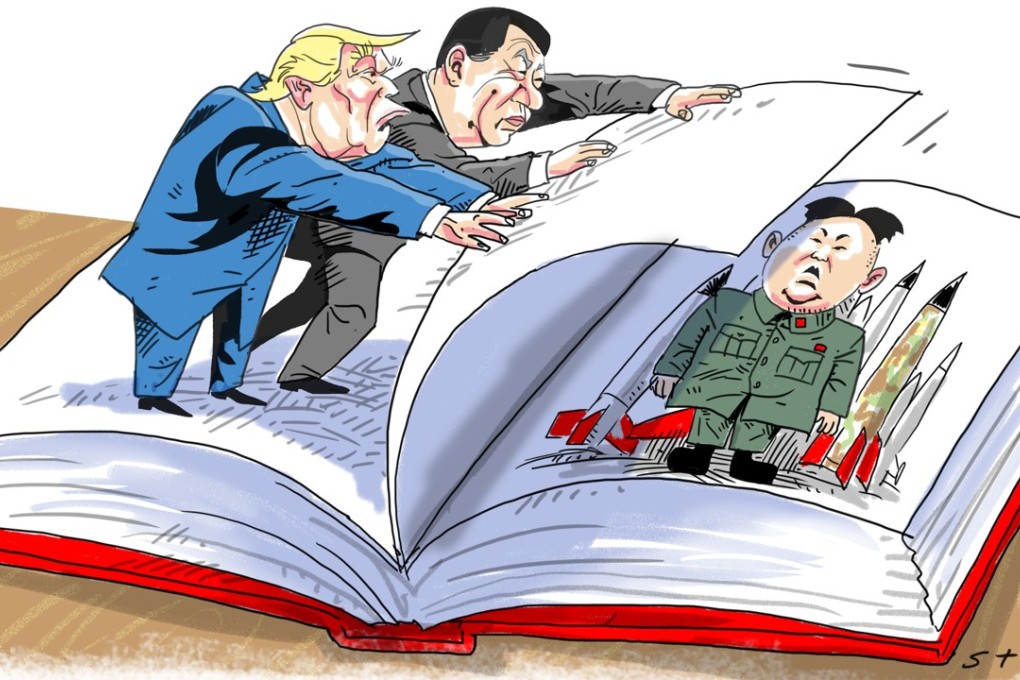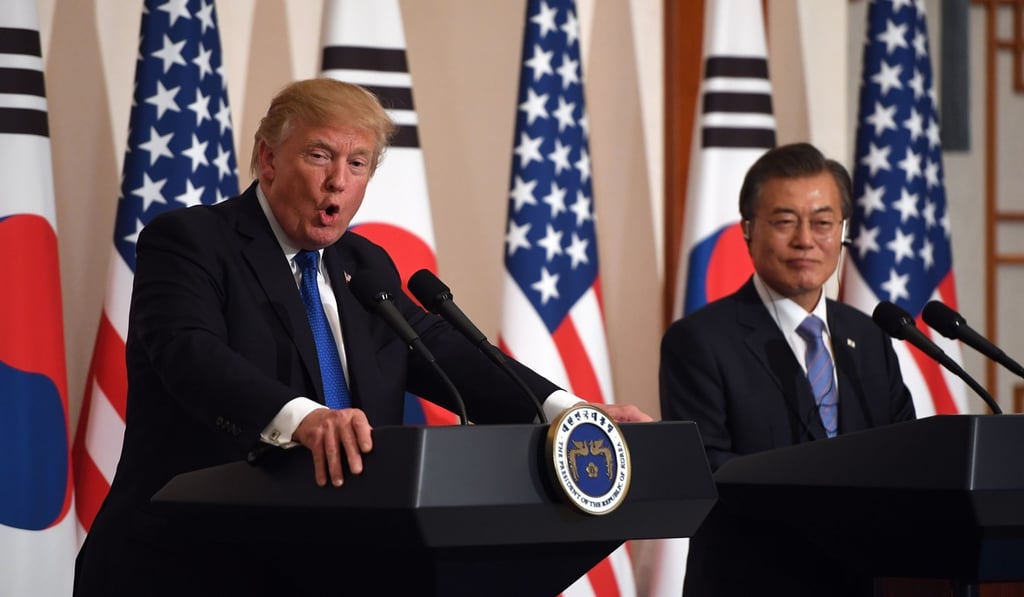Advertisement
Time for the US and China to get on the same page on North Korea’s political future
John Barry Kotch says a Sino-US joint understanding on policy options for dealing with Kim Jong-un’s regime would go a long way to easing tensions, and a group of Chinese and American officials could help the two reach a consensus
Reading Time:3 minutes
Why you can trust SCMP
0

Following a gruelling 12-day, five-nation jaunt around Asia – the longest trip of his presidency – Donald Trump returned to Washington in high spirits, albeit dogged by the investigations into links between his campaign and Russia. That was capped by the recent arrest and indictment of key campaign aides, preventing him from even a brief sit-down with Russian President Vladimir Putin to jointly advance a North Korea agenda.
Still, while long on symbolism and short on substance, Trump hit all the right notes on his security to-do list: shoring up relations with key US allies South Korea and Japan vis-à-vis North Korea and striking the right balance with Beijing, a would-be partner on North Korea. Trump has met both allied leaders multiple times since taking office, hosting Japanese Prime Minister Shinzo Abe at Trump Tower and Mar-a-Lago and South Korean President Moon Jae-in at the White House, as well as huddling with both on the sidelines of the G20 in Hamburg in July and at the UN in New York in September.

Xi Jinping’s envoy heads home from North Korea but China silent on talks with Kim Jong-un
However, the contents of a bland joint statement at the G20 stressing “agreement on a common strategy to confront the threat of North Korea and ensure the security of Northeast Asia and the United States” have never been publicly divulged. And while aerial and naval shows of force shadowed the presidential entourage while in the region, they are no substitute for signalling how the US might respond to the next provocation. That leaves the playing field wide open for North Korean leader Kim Jong-un to lay down the next marker, be it a nuclear test or missile launch.
Trump was unequivocal in his speech to the South Korean National Assembly, stating that, “We will not permit America or our allies to be blackmailed or attacked.” But he also missed an opportunity to put Kim on notice by channelling president John F. Kennedy’s declaration at the height of the Cuban missile crisis that: “It shall be the policy of this nation to regard any nuclear missile launched from Cuba against any nation in the Western Hemisphere as an attack on the United States, requiring a full retaliatory response upon the Soviet Union.”
What the horrific parasites infesting a defector’s stomach tell us about North Korea
Translation: “An attack on one is an attack on all”; Washington would regard an attack by North Korea on South Korea and/or Japan as an attack on the United States requiring an appropriate response.
Advertisement